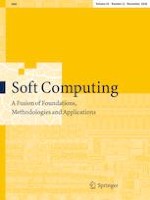06.05.2020 | Methodologies and Application
Semantic analysis-based relevant data retrieval model using feature selection, summarization and CNN
Erschienen in: Soft Computing | Ausgabe 22/2020
EinloggenAktivieren Sie unsere intelligente Suche, um passende Fachinhalte oder Patente zu finden.
Wählen Sie Textabschnitte aus um mit Künstlicher Intelligenz passenden Patente zu finden. powered by
Markieren Sie Textabschnitte, um KI-gestützt weitere passende Inhalte zu finden. powered by
